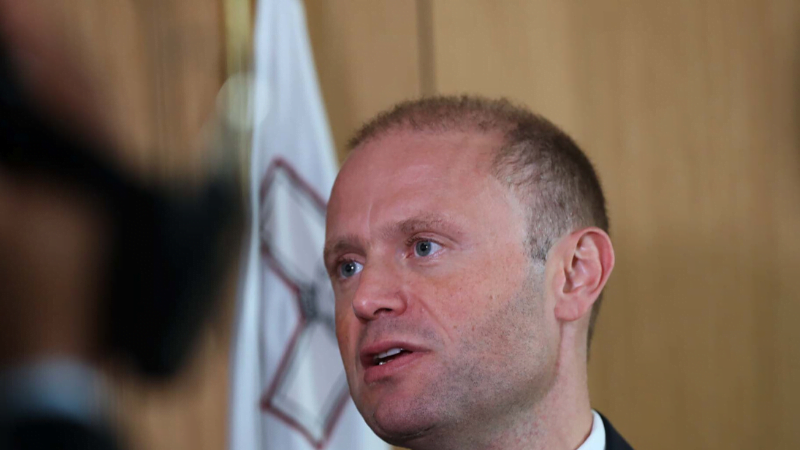Malta is the most difficult place in the EU to do business, and the situation has been getting worse over the last three years, according to The World Bank Doing Business 2020 report.
The government touts Malta as a hub for igaming, blockchain, cryptocurrency, medical cannabis, and now Artificial Intelligence, but the regulatory and business environment in the country is not as welcoming as the image promoted by government statements.
Malta has fallen 12 places in the annual report by the World Bank since 2017. The country is now ranked lowest in the EU, and is being outperformed by countries such as Albania, Tunisia, Uzbekistan and the reclusive kingdom of Bhutan.
The Doing Business 2020 report takes an in-depth look at the costs to companies of business regulation. Some 190 economies from Afghanistan to Zimbabwe are compared across sub-indices including starting a business, getting credit, getting utilities, trading across borders, paying taxes, and labour market regulation.
Malta ranked at 88 this year, a drop of four places from the previous year, and a major decline from its best ranking of 76 in 2017. Only a few improvements have been made in Malta’s regulatory environment, according to the report. Unsurprisingly, this includes making it easier and faster for businesses to apply for construction permits.
The other areas where Malta showed improvement were in the reliability of the national power supply, the creation of a website for online registration of employees and VAT, and the introduction of new annual leave regulations.
Despite these poor results, Prime Minister Joseph Muscat told parliament last week that “Malta is a top performer […] We are on par with Germany.” That confidence seemed to contradict the latest EY Attractiveness Survey 2019, where just 46% of foreign respondents said they were happy with doing business in the country.
Finance Minister Edward Scicluna echoed Muscat’s confidence in an interview with South European Summit. “Many countries are much more advanced than Malta, but they get it wrong when it comes to regulation,” he said. “They are so heavy and so bureaucratic, and it takes time, while in Malta if we hear of a disruptive idea, which you sense that is going to be the next big wave of economic activity, [we] grab it and run with it and build a regulatory framework for it.”
Unfortunately, that strategy doesn’t seem to be working. Despite branding Malta as ‘Blockchain Island’, a number of crypto companies have already left Malta less than a year after three highly anticipated cryptocurrency acts entered into force.
Coineone Global Exchange closed in August after operating for just 10 months. Zebpay left Malta in September after operating for 11 months. And industry rumours indicate Binance, the crypto exchange that announced its move to Malta before the new crypto laws were passed in parliament, is thinking of leaving, too.
Cryptocurrency exchange Bittrex also announced last month that it was relocating from Malta to Liechtenstein, but gave no reason for the decision. The Shift contacted Bittrex with questions on how they found doing business in Malta and why they decided to leave. The company responded by requesting an extension to the deadline. We “would love to be able to answer your questions,” they said, but declined to comment in their next email.
Access to banking seems to be part of the problem. Corporate service providers who have spoken to The Shift complained it is “nearly impossible” to open a bank account in Malta, a sentiment echoed in a number of industry articles.
In June 2017, four months before she was assassinated, journalist Daphne Caruana Galizia had reported that Deutsche Bank had cut all ties with Bank of Valletta (BOV). ING followed suit in June 2019, ending BOV’s sole remaining US dollar correspondent banking relationship. They have not yet found a replacement.
BOV is also conducting a major de-risking exercise, following a review by the European Central Bank, and is terminating relationships with ‘high risk’ clients including igaming companies. The gaming industry currently accounts for approximately 12% of Malta’s GDP.
Despite these problems, the government insists that Malta is a centre of excellence in the igaming industry. This didn’t stop four igaming companies from shedding staff over the last few months. Multilotto, Stars Group, and GiG have collectively made some 90 redundancies, with more expected before the end of the year.
Malta has also come under increasing scrutiny from institutions and regulatory bodies across Europe. The country failed the Council of Europe’s Moneyval anti-money laundering evaluation in 2019 and was given one year to fix the issues raised or face potential blacklisting procedures.
Malta’s Moneyval rating was “poor overall”, with low scores in areas that include risk management, money laundering investigation and prosecution, and the prevention of financial crime.
Finance Minister Edward Scicluna dismissed concerns by claiming money laundering happens everywhere. “I do not know of any jurisdiction that can put its hand on its heart and say we don’t have any money laundering here,” he said.












